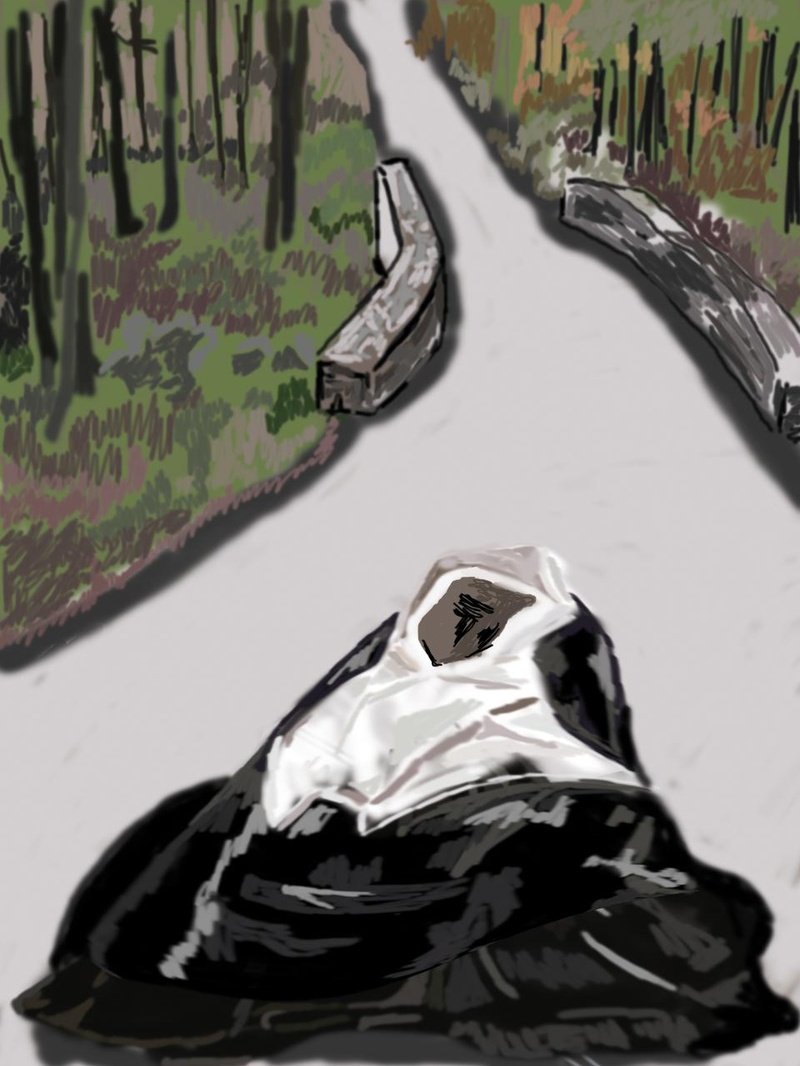“Mother could believe this about anyone, but she cannot believe it about you.” These were some of the last words the late Mother Teresa spoke to Mary Johnson twenty-four years ago; saints have a habit of speaking in the third-person. Johnson, a former nun turned bestselling author, provoked the world-renowned religious figure to this rebuke by leaving Mother Teresa’s religious order, Missionaries of Charity, for good. Johnson reflected on the meaning of these words in front of a small, disparate group of humanists, who shifted in their fold-up chairs with curiosity as she gave a talk about her memoir, “An Unquenchable Thirst,” two Sundays ago. Though far from the convents and cathedrals where she spent much of her life, Johnson still reads with religious theatricality, alternately projecting and whispering within the cozy Eliot St. office space that serves as the Harvard Humanist Chaplaincy’s headquarters.
The Nobel Peace Prize-winning nun’s disheartened words are the epitaph to the 20 years Johnson spent rising in the ranks of the Missionaries of Charity and a part of the story contained within her memoir, which was published last year. A tale of a firm humanitarian spirit continually checked by bureaucratic nonsense, hyperbolized piety, and sexual scandal, “An Unquenchable Thirst” represents religion at its most complex and conflicted. Now a self-described “non-religious person” who no longer believes in God, Johnson has spent the majority of her years since leaving the order developing the resources and skills to flourish as a writer. “[When I was with the Missionaries of Charity], the question had always been, ‘Where is the greatest need?’” Johnson says. “Then, the question shifted to, ‘What is it that I have to offer?’ I realized that a lot of that had to do with telling my story and a lot to do with sharing some of the lessons that I had learned.”
Johnson represents an extreme case of the predicament that atheists, agnostics, and humanists face at Harvard and across the world: How does one maintain the good, important parts of formalized religion, the parts that people like Johnson find especially difficult to give up—community, dedication, and responsibility to others—if one denies the existence of a higher being? Johnson’s answer has been to find purpose and community in telling her story and aiding other female writers in telling their own tales.
ELECTROMAGNETISM
In 1977, at the age of 19 and after only a year at the University of Texas, Johnson found herself following the call of God to the doors of a cramped convent in the Bronx, where her career with the Missionaries of Charity officially began. “I felt that it was my vocation,” she says, “that this is what I had to do.” Johnson had once felt a connection with Mother Teresa’s portrait on the cover of Time magazine, which she saw in her high school library. She skipped French class to read the article. The self-certain and rebellious Johnson felt an uncannily strong spiritual connection with Mother Teresa’s radical focus on asceticism and direct involvement with the plight of the poor. “How did one write about electromagnetism?” she writes in her memoir. “That’s what the pull had felt like.”
From the beginning, Johnson felt uncomfortable with the authoritarian structure of the Missionaries of Charity. Early in her memoir, she mentions her immediate uncertainties: “The Constitutions [the code of law Mother Teresa wrote], the Rules, and our superiors were…God’s voice and governed when we could speak, what we could read, how to sit, walk, or kneel, sometimes even what to think.” Once, the arbitrary authority became so overbearing that Johnson impulsively picked up her superior and shook her out of frustration.
After six months in the Bronx, Johnson was transferred to Rome, where she spent most of the next 20 years, aside from some work in Winnipeg, Canada, and Washington D.C. In Rome, Johnson ascended the ranks of the Missionaries of Charity, eventually being sworn in as a nun under the chosen name Sister Donata. Intimating Johnson’s intentions, the Italian name Donata means “the freely given one.”
Johnson’s desire for satisfaction and human connection, both of which were heavily condemned by the Rules, became real problems as she continually found herself rebuffed precisely when she began to feel fulfilled in her work. “We weren’t allowed to get anything for ourselves from the work,” Johnson says. “No pleasure, no gratitude from the people: nothing. It’s one of the reasons that our work suffered.”
“CHURCH WITHOUT THE GOD”
Johnson’s book reading was presented by the Humanist Chaplaincy at Harvard, a small 35-year-old organization that has recently garnered national attention due to the ambitions of its head, chaplain Greg Epstein. With the oratorical deliberateness of a priest and the casual, disarming manner of a youth group leader, Epstein is as personable as his believer counterparts. “Up until now in human history,” Epstein says, “religion has been a primary source of community for people. If humanism is going to provide an alternative to that, we need to study how to make it the best alternative for people. We want to learn from religious groups; we want to learn from anything that we can in order to figure out how to have the most effective community.”
Through frequent events involving prominent humanists and weekly Sunday meetings to discuss and meditate, Epstein hopes to provide the kind of community typically associated with houses of worship. Humanists have adopted the religious tradition since, Epstein says, “there is a lot of documentation that this sort of thing is helpful for a lot of people.”
For some, humanism fills a void. Stephen Goeman, a junior at Tufts University, attended church and a youth group throughout high school, so when he lost his religion in college, he felt he had lost an important means of connecting with people. Now, he attends the events of the Humanist Chaplaincy at Harvard regularly, because, he said, “It’s like church without the God.” Creating a formal community out of a group defined by a lack of a common creed may seem a formidable task. However, Epstein thinks humanists cannot ignore the fact that natural inclination for community sometimes impedes the personal transition from a religious background to non-belief. Speaking of Johnson’s own journey, Epstein says, “[Defining your own values] is often a very scary process. I think that’s what took Mary so long, since it can be very isolating to have to leave a community that you’re from and define yourself.” Johnson’s need for community made it difficult to leave the order in which she had invested so much, but her desire for true human connection soon made it even harder to stay.
TIME CAPSULE
When one of Johnson’s fellow missionaries, a nun with the chosen name Sister Niobe, confessed her romantic love for Johnson during Johnson’s time in Rome, she was thrilled. Suffering from a lack of personal attachment—touch of any sort between sisters, even a simple hug, was prohibited, and private conversations were supposed to be limited to scheduled meetings with superiors—Johnson leaped at the opportunity for some intimate contact with another human being. But the relationship threatened the two sisters’ vows of chastity.
Hugs, kisses, and eventually trysts in a secluded room by night jeopardized Johnson’s faith in herself as a Missionary of Charity. However, it also proved to her a richness of experience that the order had denied her: not merely the pleasures of love and sex, but the basic joys of enjoying another’s company and feeling valued. “Niobe had taught me about my own goodness, and about the joys of tenderness,” Johnson writes in her memoir. “I was grateful.”
Read more in Arts
Capturing “Beautiful Resistance”














